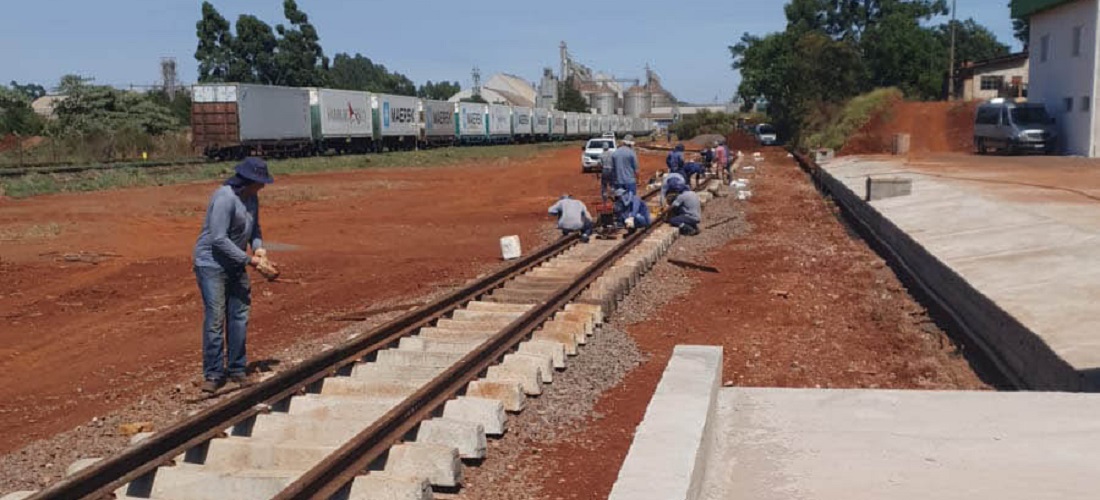
Expansion of Ferroeste’s terminal will double the shipment of containers via rail
Jan, 24, 2022 Posted by Gabriel MalheirosWeek 202204
The extension of the Cotriguaçu container terminal at the Ferroeste yard in Cascavel, Paraná, shall be completed by the first half of February. The Cotriguaçu is in charge of the grain and animal protein distribution, which are produced by C.Vale, Lar, Copacol, and Coopavel, in the region.
The work, done in collaboration with Ferroeste, will increase the container loading area by 500 meters and double the capacity of rail cargo. Cotriguaçu invested R$ 14 million to expand the yard and improve rail diversion. R$ 2.3 million of this total was reserved for access improvements.
The expansion will double the shipment of refrigerated containers via rail, explained Edson Vidal, manager of frozen products at Cotriguaçu. “We are going to increase our handling capacity from 25-30 containers per day to 60-70”, he said.
The cooperative’s share of the total handled by Ferroeste will increase from 30% to 40%.
André Gonçalves, CEO of Ferroeste, highlights that Cotriguaçu is the company that invests the most in the terminal, going beyond R$ 500 million in investments. “The cooperative is growing, especially in terms of container transport. Thus, increasing the share of the railway modal transportation, which is responsible for transporting almost 30% of all Cotriguaçu production, would be beneficial”, he explained.
In 2021, 1,100 containers full of either frozen or refrigerated animal protein left the terminal in Cascavel bound for the Port of Paranaguá, from where they were sent to Europe, Asia, and Africa.
Two pathways
Prior to the extension works, the yard featured only one pathway, the so-called “deadline”. According to the director of Production at Ferroeste, Gerson Almeida, the time it took to maneuver trains prevented the terminal from increasing container handling in the past. With the additional 500 meters built, the access has now two entrances and two exits.
“We are now able to load 60 wagons without carrying out reversing maneuvers or changing railcars. It goes in one side and out the other,” he explained. “This expansion of the terminal provides operational, financial, and productivity gains for both companies. We practically tripled the number of wagons per slope, directly reducing operating costs. We thus gain in productivity and efficiency”.
-
Other Cargo
Mar, 25, 2021
0
MAPA publishes new procedures to expand peanut exports
-
Other Cargo
Feb, 25, 2022
0
Latin American Apparel Exports Seen Growing 10%
-
Ports and Terminals
Sep, 05, 2019
0
TCP sets two new records in August
-
Ports and Terminals
Apr, 16, 2025
0
Svitzer Highlights Fuel Efficiency and Maneuverability Gains in New TRAnsverse Tug Whitepaper

